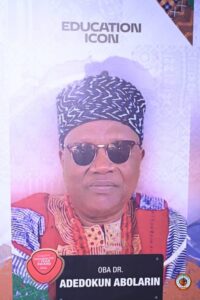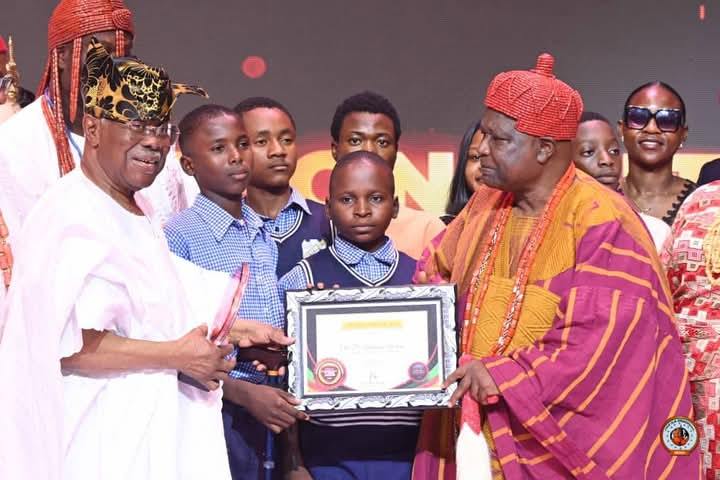By Sola Ojewusi
The recent conferment of the 2024 Vanguard Newspaper Education Icon Award on Ọba Adedokun Abolarin, the Orangun of Òkè Ila, is not just a personal accolade; it is a watershed moment in the evolving role of traditional institutions in Nigeria’s educational and philanthropic landscape. This recognition has sparked deeper reflections on how visionary leadership, rooted in culture and compassion, can reshape the future of education for the underserved.
Ọba Abolarin, widely known for his establishment of Abolarin College — a tuition-free school for brilliant but indigent students — has consistently used his throne not merely for ceremonial relevance, but as a platform for social transformation. In an era when access to quality education remains uneven and regional disparities continue to hinder national cohesion, the Orangun’s model stands out as a blueprint for impact-driven philanthropy.
What makes the award even more compelling is the deliberate and symbolic presence of his students from diverse ethnic and religious backgrounds — Jimoh Hasabala and Fatima Hussein from Borno State, Miracle Nwanchor from Enugu State, and Boluwatife Adesola from Osun State. In their youthful faces lies the embodiment of the Nigerian dream — one where no child is left behind due to geography, religion, or economic status. Their representation affirms the monarch’s commitment to unity through education.









“This award is a shining testament to our dedication to education, leadership, the traditional institution, and the advancement of our great nation,” Ọba Abolarin said. It is a sentiment that resonates far beyond the corridors of Vanguard’s headquarters; it reverberates across communities where children still walk miles for learning and families struggle to afford basic school supplies.
From a broader perspective, the award elevates the conversation about the potential of non-state actors in driving educational reform. At a time when Nigeria grapples with funding gaps in public education, the Orangun’s initiative demonstrates how targeted philanthropy can offer scalable solutions — one community, one child at a time.
More importantly, the recognition may catalyze a new wave of philanthropic engagement from traditional leaders and private citizens alike. It affirms that honour and impact are not mutually exclusive, and that cultural leadership can coexist with progressive action. As the Orangun himself noted, “As we move forward, we will continue to work tirelessly towards nation-building, driven by our unwavering commitment to progress.”
In essence, the Vanguard Award is more than a trophy — it is a call to action. It urges the nation to look beyond conventional structures and to embrace the transformational power of education-driven philanthropy. As Nigeria seeks to harness its human capital for sustainable development, leaders like Ọba Abolarin offer both a mirror and a map: a reflection of what is possible, and a pathway to what must be done.

